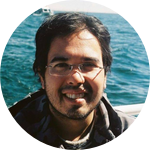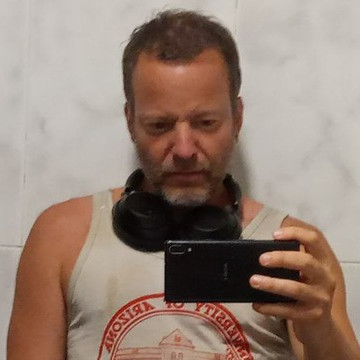About This Project
This project develops an open-source platform to study how gamified career tracking and mentorship tools affect researcher well-being and collaboration. Users set goals, track outputs and metrics, and receive balance-promoting prompts. The platform supports self-assessment and meta-research on academic environments. The hypothesis is that structured, user-led tracking and support will help reduce burnout, foster collaboration, and improve outcomes across research environments and disciplines.
Ask the Scientists
Join The DiscussionWhat is the context of this research?
Research in academia requires skillful balancing of publishing, mentoring, grant writing, and teaching, often without sufficient support. This contributes to burnout, inefficiency, and career dissatisfaction. This project introduces an open-source platform to explore whether gamified, structured career management tools can improve researcher well-being, collaboration, and productivity. Unlike existing systems focused on outputs alone, this platform will track mentorship, grant timelines, and workload alongside traditional metrics. Open-source and user-led, it ensures adaptability and data ownership. Gamification supports engagement through achievement milestones, planning prompts, and guided reflection tools. These features aim to help researchers—especially those in independent or under-resourced settings—build meaningful, sustainable career practices. The project also enables meta-research on woring patterns and tests new models of success beyond publication counts alone.
What is the significance of this project?
This platform addresses systemic challenges in academia, including unequal access to career development tools, limited support for broader collaboration, and increasing rates of stress and burnout. By offering an open-access, adaptable system, it empowers researchers -regardless of background or institutional resources- to better manage their careers. Crucially, it broadens the definition of academic success by valuing mentorship, innovation, and community engagement alongside traditional outputs. Users can visualize contributions across collaborative projects, align their efforts with long-term goals, and engage with global initiatives. These features promote a culture of shared progress, transparency, and mutual support. The platform also enables meta-research on success and well-being by aggregating anonymized data on outputs, funding, and collaboration patterns -offering valuable insight into the conditions that foster productive and sustainable academic careers and environments.
What are the goals of the project?
This project aims to help researchers navigate their careers by addressing overlooked but critical aspects of academic life. Beyond tracking bibliometrics and grants allocation, the platform will track relevant socio- and biometrics, allowing users to monitor on their scientific contributions. It enables users to set personal goals, monitor progress toward milestones like tenure or career transitions, and track key metrics such as publications, funding timelines, mentorship activity, and collaboration networks. A central goal is to facilitate interdisciplinary research by algorithmically connecting users across fields based on shared interests or project goals. The platform also supports mentorship by enabling visibility into collaborative contributions and fostering peer recognition. Through built-in well-being prompts and user-defined success indicators, the project aims to promote sustainable research careers that balance productivity with personal growth and community engagement.
Budget
The budget items support the development and deployment of the open-source gamified academic career management platform, ensuring functionality, sustainability, and effective use of resources.
Server Hosting ensures the platform is accessible and stable for two years, allowing users to interact with the software globally. It provides the necessary infrastructure to handle data, user activity, and scalability.
Developer Time supports my work as the sole developer, covering the design, coding, and implementation of the platform. This includes creating data pipelines, building the user interface, and ensuring the software runs smoothly, as well as ongoing maintenance post-launch.
Miscellaneous Expenses cover unexpected needs, such as domain registration or minor software tools, ensuring the project progresses without delays. This lean budget maximizes resources to deliver a fully functional platform that meets user needs and lays the foundation for long-term project sustainability.
Endorsed by
 Project Timeline
Project Timeline
The project begins with a six-month development phase to create a minimum viable product featuring research tracking, goal setting, and metrics visualization. Data integration and interface design will ensure functionality and usability. Beta testing with early adopters follows, refining features and scalability. By month nine, the platform will launch publicly, with ongoing updates and user-driven enhancements, including well-being tracking and gamification, to meet evolving researcher needs.
Nov 01, 2025
Start of Development: all code will be shared in a public open-source repository from day one to ensure transparency, community engagement, and reproducibility.
Jan 01, 2026
Beta Testing and Feedback: A functional beta version will be released to a selected group of researchers for real-world testing. User feedback will be systematically gathered.
May 01, 2026
Data Collection and Research: Following the initial development phase, we will collect usage data and feedback from early adopters.
Nov 01, 2026
Feature Expansion Phase: Based on beta testing results and user feedback, additional features will be developed to enhance functionality and user experience.
Dec 01, 2026
Publication and Dissemination: Research findings and platform outcomes will be published in a peer-reviewed journal and conferences, including publishing reports and documentation.
Meet the Team
Affiliates
Henning (Enric) Garcia Torrents
Henning (Enric) Garcia Torrents is a professor in training and doctoral researcher at the Medical Anthropology Research Center, Universitat Rovira i Virgili (Spain). Their research focuses on medical anthropology, with an emphasis on mental health, social determinants of health, and non-coercive approaches to care. Henning’s doctoral project, supported by Spanish ministerial highly competitive grant, investigates shared decision-making and dialogic practices to transform mental health systems and reduce coercion, advancing socially engaged academic work.
Henning holds a master’s degree in biological anthropology from the Universitat de Barcelona, where they specialized in psychiatric genetics and neuroimaging. They also completed postgraduate studies in collective mental health and open dialogue. Their research trajectory includes collaborations with institutions such as Stanford Law School, the University of Arizona, and CIBERSAM, contributing to their interdisciplinary expertise across anthropology, neuroscience, and law.
Professionally, Henning teaches research methods and scientific communication, while also conducting ethnographic fieldwork within the EU COST Actions FOSTREN and ReMO, focused on reducing coercive interventions and supporting researcher well-being. They currently lead a taskforce on best digital mental health practices under the ongoing COST Action YouthDMH. They produced contributions such as a Springer book chapter on non-coercive practices and peer-reviewed publications in international journals.
As an active participant in the European research landscape, Henning engages with networks like the Aurora European University Alliance and multiple other initiatives. Their work reflects a strong commitment to fostering collaborative, rights-based approaches to mental health and building a health promoting culture. By bridging practice, policy, and research, Henning aims to promote well-being and meaningful reform both within and beyond academia.
Additional Information
The platform enables meta-research by aggregating anonymized data to reveal trends in productivity, career paths, and bottlenecks, providing actionable insights for improving academia. Current solutions lack this dual focus on empowering individuals and generating system-level understanding.
Why This Platform is Needed Academia is demanding, with researchers juggling publishing, securing grants, teaching, and collaboration, often without tools that integrate these processes effectively. Existing solutions are fragmented, focusing only on specific tasks (e.g., reference management or grant databases) without offering a unified, holistic approach. This platform bridges the gap, streamlining career management while addressing critical issues like burnout and fostering collaboration.
How It Helps Researchers Thrive The platform empowers users by integrating academic career planning with real-time tracking of research pipelines, grant applications, and personal well-being metrics. It motivates users through gamified elements like milestones and achievements while emphasizing sustainability through health tracking. By visualizing progress, offering actionable insights, and fostering connections, it helps researchers achieve their goals while maintaining balance.
What Makes It Unique Unlike existing tools, this platform provides an all-in-one solution. It combines essential academic features (e.g., h-index tracking, grant applications) with well-being monitoring and gamification. Community-building tools enable researchers to connect, collaborate, and mentor, while the open-source model ensures accessibility, adaptability, and global reach. Its capacity for meta-research through anonymized data aggregation further sets it apart, offering insights into academic trends and systemic improvements.
The Open-Source Advantage As an open-source platform, it is free to access and adaptable to individual or institutional needs. Researchers can customize its features, contribute to its development, and share innovations. This ensures the platform evolves with the community and remains accessible to underfunded researchers or institutions worldwide.
Long-Term Impact The project aims not only to support individual researchers but also to strengthen the global academic ecosystem. By providing tools for productivity, collaboration, and well-being, it fosters healthier, more impactful careers. Its meta-research potential can guide policies, improve funding strategies, and address systemic issues in academia, creating a ripple effect of positive change.
Project Backers
- 0Backers
- 0%Funded
- $0Total Donations
- $0Average Donation


